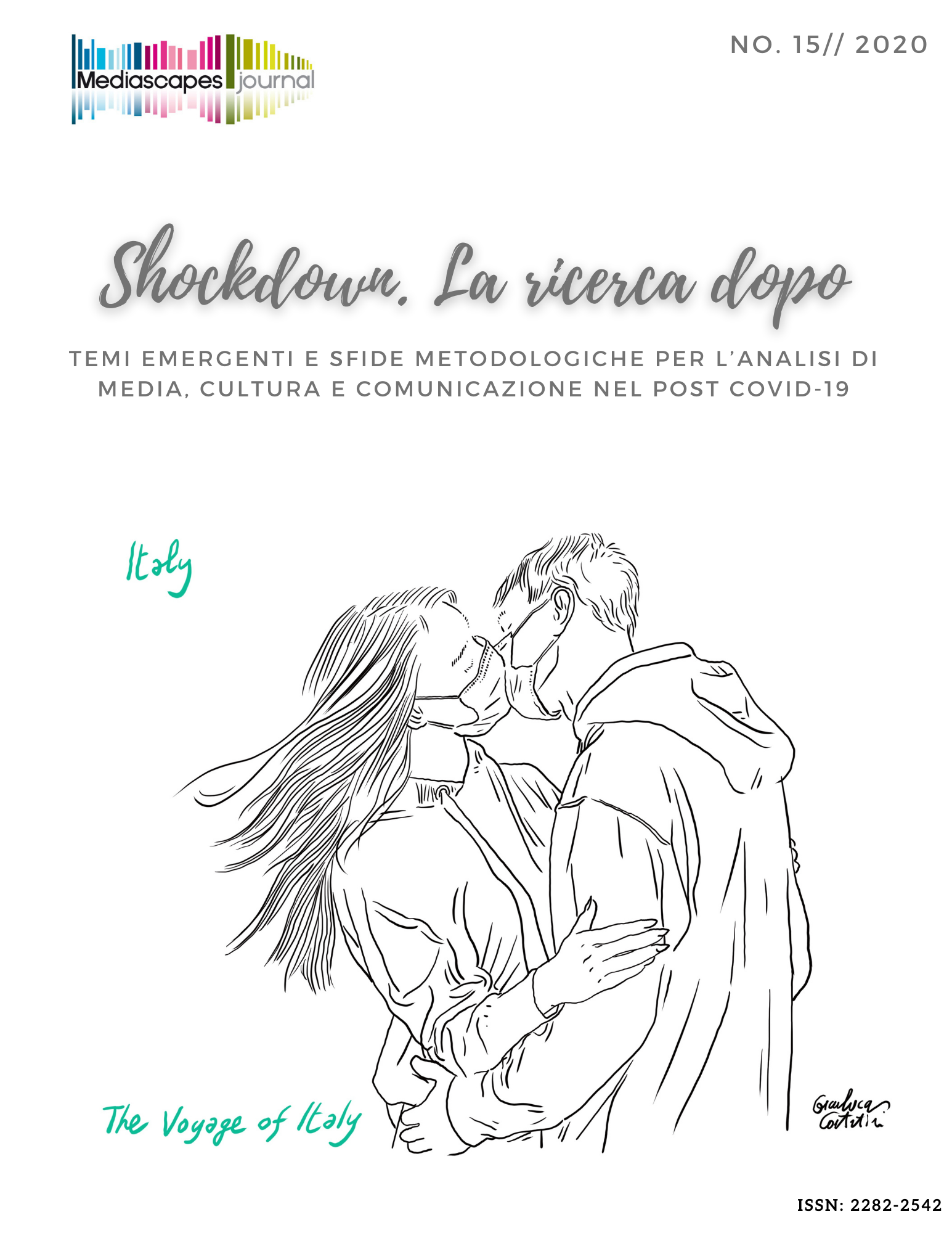Fake news, Covid-19 e Infodemia: un esempio di ricerca sociale in real-time su Twitter
Keywords:
fake news, Covid 19, infodemia, digital methods, TwitterAbstract
The spread of Covid-19 virus all over the world has been accompanied by the online circulation of a relevant number of fake news. In this regard, the World Health Organization coined the term infodemic, that is, “an epidemic of misinformation - spreading rapidly through social media platforms and other outlets that poses a serious problem for public health” (Zarocostas, 2020). In this short essay, we explore the processes of circulation of fake news within the Italian Twittersphere during Covid-19 emergency. Drawing upon the analysis of 7,237,581 tweets, based on a digital methods approach, we conclude that it is not possible to observe a real infodemic within the Italian Twittersphere. Only 1,44% of the tweets collected are fake news, plus they circulate only in very specific periods and within closed communities. Furthermore, the 61% of fake news deals with the topic of immigration: false information that put the blame of coronavirus diffusion on migrants do not represent, per se, a threat to public health; instead, they are part of the strategy adopted by Italian right-wing populist movements to get online visibility for political purposes. In the conclusion, we also propose a reflection on the characteristics and potentials of real-time social research, arguing that it can give a fruitful and authoritative contribution to enhancing the online public debate on contemporary social issues.
Downloads
Published
How to Cite
Issue
Section
License
Mediascapes Journal is published under a Creative Commons Attribution Licence 4.0.
With the licence CC-BY, authors retain the copyright, allowing anyone to download, reuse, re-print, modify, distribute and/or copy their contribution. The work must be properly attributed to its author. It should be also mentioned that the work has been first published by the journal Anuac.
Having published these contributions for the first time, Mediascapes Journal will have the right to publish them integrally or partially as reprints or possibly as part of a thematic issue, in both digital and printed format.
It is not necessary to ask further permissions both to author or the journal.


